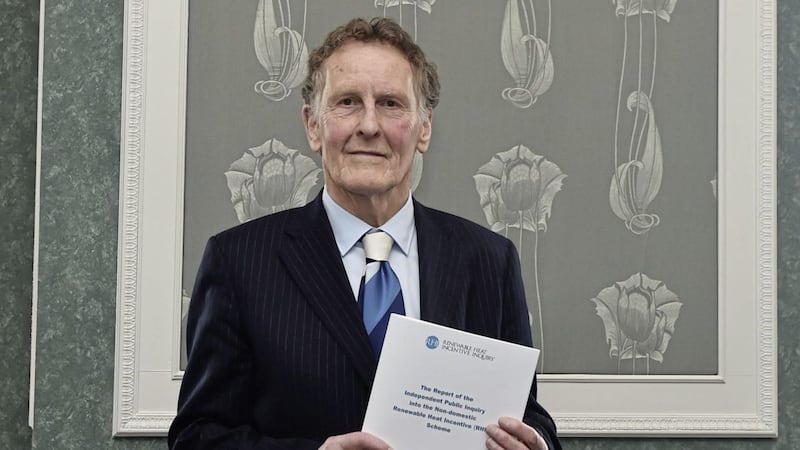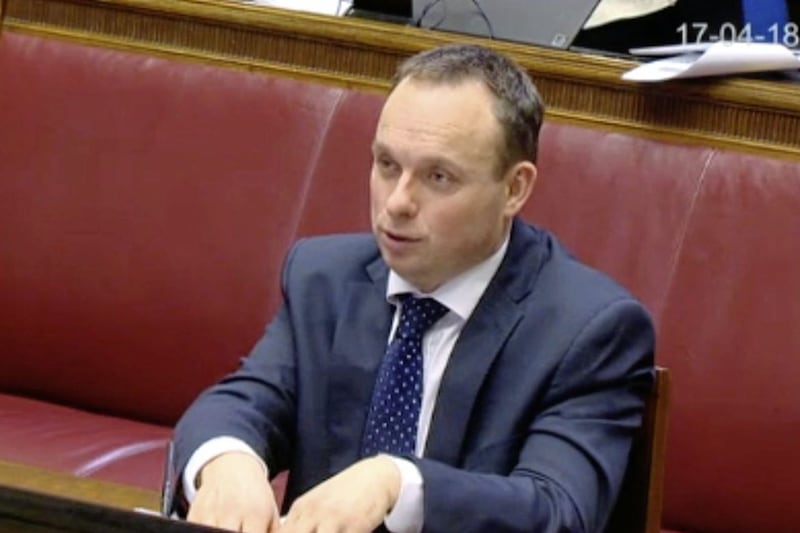IN the end, the report into the botched Renewable Heat Incentive scheme which led to the collapse of Stormont couldn't have been released on a worse day.
Certainly if anyone wanted to bury the findings, they couldn't have chosen a better time than during a global pandemic when most people were more concerned with making sure elderly relatives were safe and trying to stock up on soap and hand sanitiser in the face of mass panic buying and empty supermarket shelves.
The report was even overshadowed by clear signs that the newly-restored Executive still has the same problems as the old one - namely the public fault-lines between the DUP and Sinn Féin. Just weeks after the re-establishment of power-sharing, cracks in the Executive's unhappy marriage were already beginning to show.
Proving that no issue, not even potential risks to children, is immune from being turned into an orange versus green row, DUP leader Arlene Foster and Michelle O'Neill openly disagreed on whether schools should be closed amid growing fears about the coronavirus outbreak.
Despite a nonsensical situation in which creches, schools and colleges in the Republic are closed but those a mile across the border remain open, Mrs Foster said on Friday that it wasn't the right time to make a decisive move.
"I can't answer as to why Michelle has decided she needs to go in this direction," she said. Perhaps common sense and an awareness of basic geography?
The public spat - which happened as camera crews and journalists were gathering in the Great Hall in Stormont ahead of the publication of the RHI report - meant that when the text of Sir Patrick Coghlin's lengthy document was released its impact was more low-speed collision on a Barry's bumper car than a ride on the Big Dipper.
The general mildness of the language - describing former DUP special adviser Andrew Crawford's behaviour in sharing confidential information with his family, three of whom were beneficiaries of the RHI scheme, as "totally unacceptable" was as strong as it got - came as something of a surprise given Sir Patrick's often blunt interventions during the inquiry hearings.
Those lengthy sessions were frequently marked by Sir Patrick expressing himself in strong terms, cutting off former Department of Enterprise, Trade and Industry minister Jonathan Bell when it became clear the DUP man's evidence was less a factual account of events than an airing of grievances akin to Father Ted's speech when he won the Golden Cleric.
Mr Bell's incendiary evidence in September 2018, during which, apropos of nothing, he claimed his former special adviser Timothy Cairns outlined "inappropriately and in garish and lurid detail the sexual misbehaviour of two DUP ministers", was one of the standout moments in a fascinating series of revelations.
The strange fluctuations in Mr Bell's powers of recall meant that he could remember every personal slight but not any information which would have actually aided the inquiry.
Despite his headline-grabbing contributions, he warranted just a few paragraphs in the final 656-page report. Undoubtedly the former minister will be left musing: 'I am big, it's the independent inquiry reports that got small.'
Several commentators have suggested that Mrs Foster, who was the minister in charge when her department launched the scheme, got off lightly.
Essentially Sir Patrick concluded that she and Mr Crawford hadn't done their jobs properly by not investigating the best possible options for the scheme.
She told the inquiry she had not read the regulations before bringing them to the assembly, an omission the report highlighted as falling short of "a core part of a minister's job".
But what was more worrying is that the report once again highlighted serious failings on behalf of the civil service - including not properly looking at the details of the scheme, ignoring repeated warnings from a whistleblower, concentrating on administrative rather than overall costs and being slow to act when problems were highlighted.
The one-way flow of information from DETI officials to industry about the RHI scheme displayed a disturbing culture in which civil servants "revealed a lack of commercial awareness". And yet no-one, not even Mr Crawford, has faced any official sanction.
In the assembly on Monday, finance minister Conor Murphy said he was setting up an independent panel to identify any potential misconduct by civil servants in relation to the RHI - although whether this has any teeth remains to be seen.
What is most badly needed is a root and branch reform of the whole civil service with better accountability structures.
The truth is that everyone named in the report got off lightly because no-one has suffered any real consequences.







